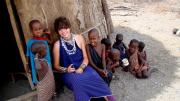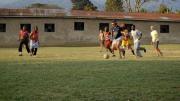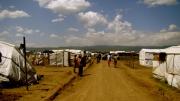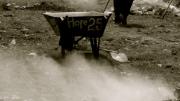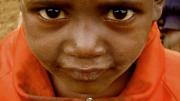The election violence in Kenya, which lasted for several weeks in late 2007 and early 2008, was an embarrassing incident for a country that enjoyed a place among Africa’s stablest and fastest-growing nations. More than 1,000 people died and 600,000 were displaced; the new power-sharing government was eager to restore the country’s reputation. By March 2009, tens of thousands of Kenyans were still living in refugee camps, but the government closed the camps anyway, marking a symbolic end to the humanitarian crisis and hoping the refugees would return home.
Megan Shutzer ’10 was watching these events from Cambridge. A social-studies concentrator from New York City, she had a longstanding interest in Africa, first kindled by a summer in Senegal during high school. Shutzer had studied Swahili at Harvard and for a summer in Mombasa, on Kenya’s coast; she had spent a semester in Tanzania, studying wildlife ecology and the conservation industry (and further polishing her Swahili). She had taken a course at Harvard on the anthropology of humanitarian aid with associate professor of anthropology Kimberly Theidon, and others with professor of history Caroline Elkins, who focuses on violence, human rights, and colonial and post-colonial African history (and who won a Pulitzer Prize for her book on British rule in Kenya). And so when Shutzer set off for Kenya last summer to study the election violence’s aftermath, she knew her way around, even if she didn’t know what angle her research would take.
Through interviews with aid organizations, she learned the fate of the remaining refugees. In the northern Rift Valley, the pattern was that those who lived in the camps at the time they closed moved their tents a short distance (across the street) or a longer distance (closer to where they'd come from, camping out along a roadside) to form settlements known as “transit camps.” In the southern part of the valley, it was more common for displaced persons to band together into “self-help groups,” pooling their money to buy tiny pieces of land. Shutzer visited several transit camps and self-help groups to interview residents about their experiences, but spent most of her time at one self-help group, nicknamed Pipeline, where 6,500 people lived on 16 acres. Employment was scarce, and food deliveries from the Red Cross stopped after the refugee camp officially closed several months earlier.
Although government officials would not say so explicitly, Shutzer could only surmise that the government closed the camps so that Kenya would no longer be classified as a country in crisis. The government officials she interviewed were sometimes frustratingly glib, lauding the self-help groups as examples of displaced persons doing well for themselves rather than considering that the residents might like to return home or that such ethnically segregated settlements might cement tribal hostilities.
However much Kenya might like to leave this episode behind, repercussions persist (the government’s delay in prosecuting anyone for inciting the election violence has prompted rebukes from Kofi Annan and Hillary Clinton, among others). In her own interviews, Shutzer found split sentiments: a desire to move forward combined with an admission that the events of 2007 and early 2008 were not a mere fluke. “People would tell me, ‘Things aren’t political anymore,’ but then they would whisper, ‘There are some people who think all the Kikuyu should go back to Central Province,’ or, ‘2012 is going to be so much worse than 2007.’”
Shutzer, who will write her senior thesis with Elkins as her adviser, hesitates to make predictions about what the future holds for Kenya. She also declines to place too much blame on any one party—the government, individual politicians, civilians, or aid groups—for the predicament that still ensnares those displaced by the election violence two years ago. But one finding from her research needs no qualification, she says: “The politics of humanitarianism don’t always serve the people themselves.”
